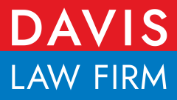Thursday, May 28th, 2009
The latest changes to bankruptcy law may be making it harder for some people to file bankruptcy. And few filers with higher incomes are no longer allowed to use Chapter 7 bankruptcy, but will instead have to repay at least some of their debt under Chapter 13. All debtors now have to get credit counseling before they can file a bankruptcy case — and additional counseling on budgeting and debt management before their debts can be wiped out. And, because the law imposes new requirements on lawyers, it is sometimes tougher to find an attorney to represent you in a bankruptcy case.
How High is Your Income?
Under the new rules, the first step in figuring out whether you can file for Chapter 7 bankruptcy is to measure your “current monthly income” against the median income for a household of your size in your state. If your income is less than or equal to the median, you can file for Chapter 7 bankruptcy. If it is more than the median, however, you must pass “the means test” — another requirement of the new law — in order to file for Chapter 7.
The Means Test
The purpose of the means test is to figure out whether you have enough disposable income, after subtracting certain allowed expenses and required debt payments, to make payments on a Chapter 13 plan. To find out whether you pass the means test, you subtract certain allowed expenses and debt payments from your current monthly income. If the income that’s left over after these calculations is below a certain amount, you can file for Chapter 7.
Counseling Requirements
Before you can file for bankruptcy under either Chapter 7 or Chapter 13, you must complete credit counseling with an agency approved by the United States Trustee’s office. The purpose of this counseling is to give you an idea of whether you really need to file for bankruptcy or whether an informal repayment plan would get you back on your economic feet.
Counseling is required even if it’s obvious that a repayment plan isn’t feasible or you are facing debts that you find unfair and don’t want to pay. You are required only to participate, not to go along with any repayment plan the agency proposes. However, if the agency does come up with a repayment plan, you will have to submit it to the court, along with a certificate showing that you completed the counseling, before you can file for bankruptcy.
Toward the end of your bankruptcy case, you’ll have to attend another counseling session, this time to learn personal financial management. Only after you submit proof to the court that you fulfilled this requirement can you get a bankruptcy discharge wiping out your debts.
